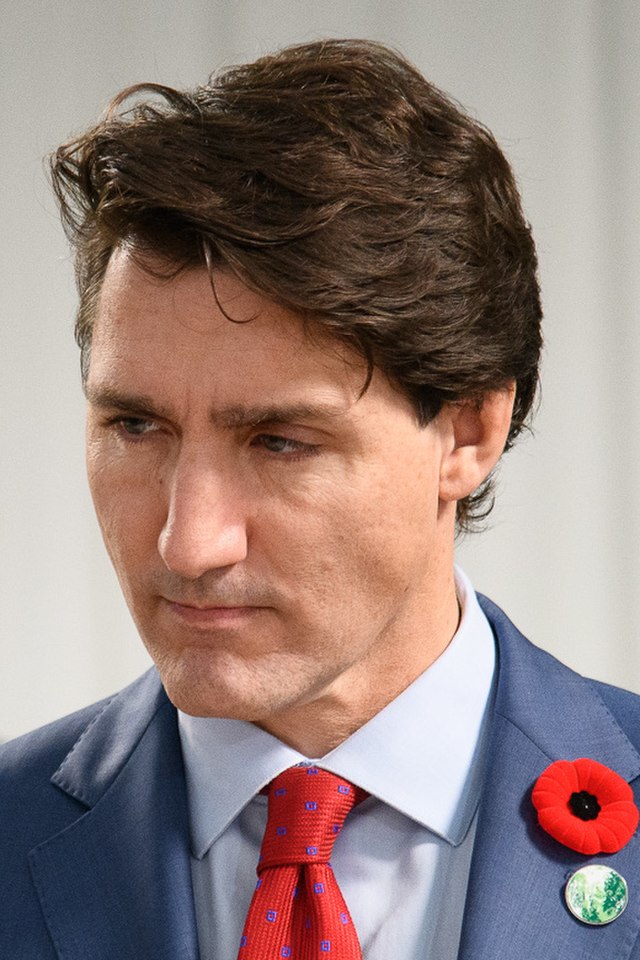
Please Follow us on Gab, Minds, Telegram, Rumble, GETTR, Truth Social, Twitter
Any sane human being, in at least, the Western Hemisphere, knew that Canada’s Prime Minister Justin Trudeau took actions too far from 2020 onward, especially when he froze the bank accounts of Canadians who participated in the truckers’ convoy in February 2022, but now the Canadians courts have slapped him into the bushes and ruled his actions unreasonable and unconstitutional.
The Federal Court ruled Tuesday that the measures Trudeau invoked under the Emergencies Act were unreasonable and unconstitutional.
The court declared that the decision to issue the Proclamation and associated Regulations and Order were unreasonable and beyond the scope of the Emergencies Act.
The decision follows an application for judicial review launched by the Canadian Constitution Foundation, the Canadian Civil Liberties Association, and several other applicants in 2022 after the emergency measures were used to end the Freedom Convoy protests in Ottawa and go after the convoy participants.
Trudeau’s decision allowed the Canadian government to freeze the bank accounts of protesters, conscript tow truck drivers, and arrest people for participating in the march. Trudeau’s government deemed the protests illegal assemblies. Trudeau also lied about the protestors’ violence in the square in Ottawa.
CDM had cameras on the ground with the convoy to Ottawa and inside the square. The violence started when Trudeau ordered the mounties to go in with horses to breakup the crowd. Before that, it was peaceful, but Trudeau's characterization of the protests then were far from reality. He claimed violence when the government stirred up the violence.
The court found Trudeau’s government had violated Charter rights, specifically encroaching upon freedom of thought, opinion, and expression. The court found the Emergencies Act order was found to infringe on the right to security against unreasonable search or seizure.
“It is declared that the decision to issue the Proclamation and the association Regulations and Order was unreasonable and ultra vires the Emergencies Act,” the Federal Court ruled.
“It is declared that the decision that the Regulations infringed section 2 (b) of the Charter and declared that the Order infringed section 8 of the Charter and that neither infringement was justified under section 1.”
The Canadian Constitution Foundation called out Trudeau’s government for overreaching and violating Canadians’ civil liberties during the pandemic.
“The Trudeau government’s use of this extraordinary law may be the most severe example of overreach and violations of civil liberties that was seen during the pandemic,” said Christine Van Geyn of the Canadian Constitutional Foundation at the time.
“The use of this powerful law was unauthorized because the legal threshold to use the law was not met. The Emergencies Act contains a last resort clause: it can only be used when there is a national emergency and there are no other laws at the federal, provincial and/or municipal levels which can address the situation. Parliament cannot use the Emergencies Act as a tool of convenience, as it did in this case.”
Today, Van Geyn called this decision a “massive victory” on social media.
In his ruling Justice Richard Mosley emphasized that the Emergencies Act should be viewed as a last resort, deployed only when all other options have been exhausted. He found that the evidence indicated most provinces were capable of managing the situation using existing laws, such as the Criminal Code, as argued by the Alberta Province.
In essence, the court concluded that the government failed to demonstrate the absolute necessity of invoking the Emergencies Act after exhausting other available options.
Part of the decision also addressed the special economic measures taken by the Trudeau government to freeze the bank accounts of Freedom Convoy organizers and protestors.
Trudeau's government’s claimed that freezing bank accounts related to the Freedom Convoy under the Economic Measures represented minimum impairment.
To the contrary, found the court. That argument was completely rejected.
Despite recognizing the government’s goal to disperse blockades, the judge argued that the freezing of accounts was far from minimally impairing, impacting individuals nationwide, even in regions without illegal protests.
The judge recommended a more restricted scope for the measures in the ruling, expressing concerns about the lack of clear standards for targeting individuals and the absence of a proper process for challenging such decisions. The unintended consequences of the account suspensions, affecting joint account holders and family members with issued credit cards, were emphasized.
Ultimately, the judge concluded that the violations of Charter sections 2(b) and 8 were not minimally impairing and were not justified under section 1 of the Emergencies Act.
Subscribe to our evening newsletter to stay informed during these challenging times!!
now that the FOG is lifting..
the REAL reason the Emergencies act was invoked was for the purposes of Laundering Money & Military aid to Ukraine illicitly and profiting from this with total Cover from appropriate scrutiny provided by the Emergencies act!
Declaring the Emergencies act for CONVOYS was just a COVER for the larger Crimes conducted in back rooms without any oversight!